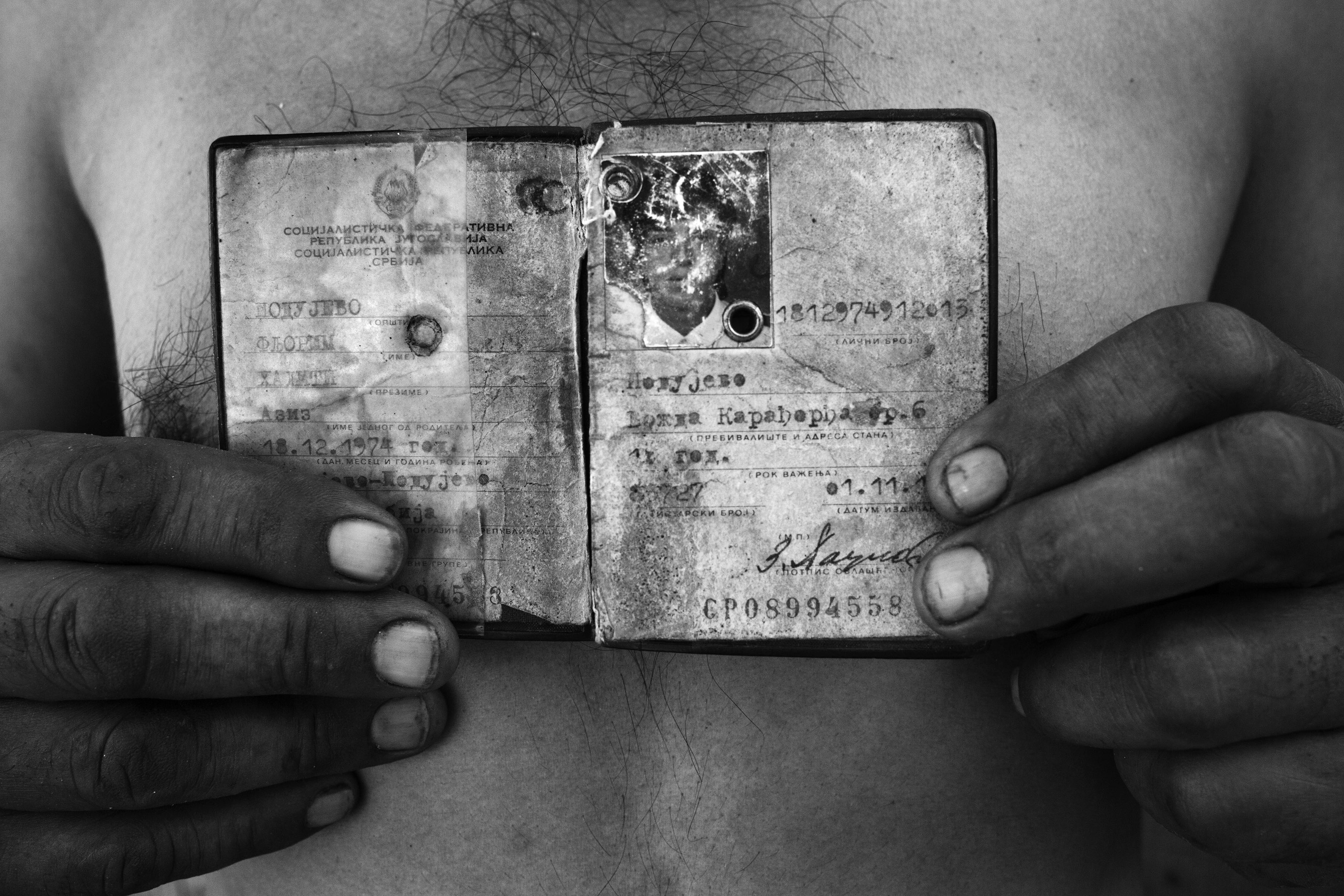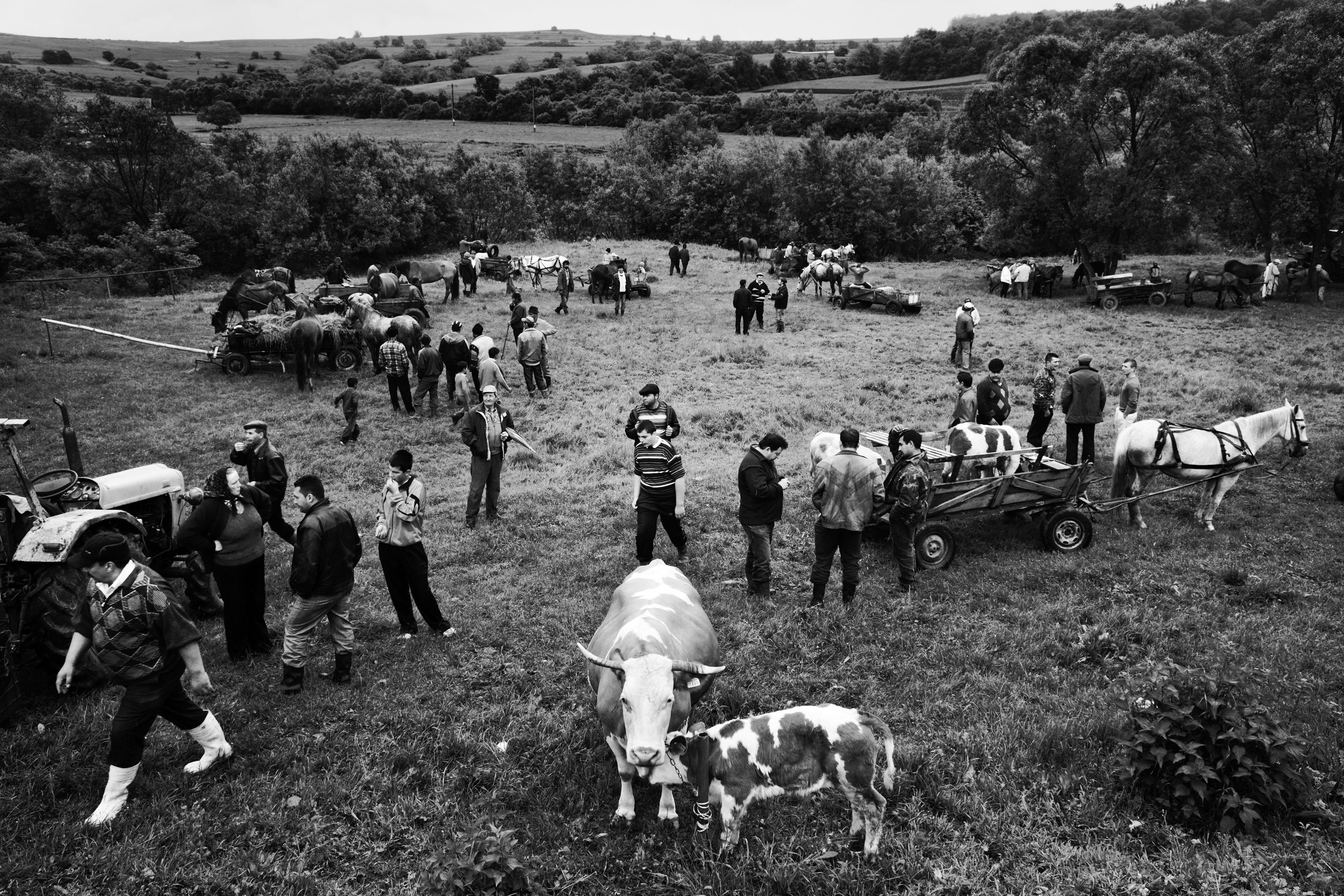Documenting the plight of the Roma people across Europe
- Text by Niall Flynn
- Photography by Åke Ericson

Back in 2009, during a visit to the Czech Republic, Swedish photographer Åke Ericson discovered that Romani families were being evicted from their homes in Breclav in order to make way for a new shopping mall.
The families – all of whom had lived there for several generations – had been forced from the town and moved to a stable, where living conditions were predictably pitiful. For Ericson, a photographer since the age of 16, his disbelief at the situation was the beginning of a project that would span almost 10 years.
Titled Non Grata (Latin for “undesirable, or “not welcome”), the subsequent series tracks the lives of the Roma people across Europe, with photos taken over the course of 17 different journeys to 10 different countries.
By documenting communities in France, Serbia, Kosovo, Romania, Sweden, the Czech Republic, Slovakia, Hungary, Spain and Switzerland, Ericson’s work includes twice the number of countries featured in Josef Koudelka’s landmark photo essay on the Roma people.
“I am a working class guy, I believe people should have the same amount of opportunity when they are born,” Ericson says.
“But, the Roma do not have that, especially in the Eastern part of Europe. Not so many people talk about this in the newspapers. They have no IDs, they are stateless. There are 12,000,000 Romas in Europe.”

Belgrade, Serbia, 2015 © Åke Ericson
Shot in black and white, the series focuses predominantly on the deplorable treatment of Roma people across the continent, offering a window into the prejudice, poverty and displacement that many families have to contend with.
For instance, Ericson cites a segregated education system in Romania and Slovakia, as well as the situation in Stockholm, Sweden, where families are forced to beg in temperatures of up to -18 degrees. (“I first saw people suffering from the beginning in Czech Republic, so, I decided to travel and see if it was the same in other countries in Eastern Europe – and it was”).
However, alongside the starker images, Ericson also seeks to celebrate the close-knit nature of communities, and the positivity that exists within them. By documenting parties and celebrations, plus intimate family moments, his work operates as an honest, total portrait.
“Many photographers had done these stories, but I would like to go under the surface,” he says. “Hopefully when people see my pictures, they will open their eyes and start thinking.”

Košice, Slovakia, 2014 © Åke Ericson

Richnava, Slovakia, 2014 © Åke Ericson

Rimavska Sec, Slovakia, 2015 © Åke Ericson
Non Grata is available in April 2018 from GOST Books.
The project is showing as an exhibition at Atelier für Photographie, Berlin from 26 April – 24 May, 2018 and at La Moulinette Gallery, Paris from 30 August – 16 September, 2018.
Enjoyed this article? Like Huck on Facebook or follow us on Twitter.
You might like

Largest-Ever Display of UK AIDS Memorial Quilt Opens at Tate Modern
Grief Made Visible — Comprising hundreds of panels made by lovers, friends and chosen family, the UK AIDS Memorial Quilt returns in full for the first time since 1994 – a testament to grief, friendship and the ongoing fight against HIV stigma.
Written by: Ella Glossop

In Medellín’s alleys and side streets, football’s founding spirit shines
Street Spirit — Granted two weeks of unfettered access, photographer Tom Ringsby captures the warmth and DIY essence of the Colombian city’s grassroots street football scene.
Written by: Isaac Muk

Remembering New York’s ’90s gay scene via its vibrant nightclub flyers
Getting In — After coming out in his 20s, David Kennerley became a fixture on the city’s queer scene, while pocketing invites that he picked up along the way. His latest book dives into his rich archive.
Written by: Miss Rosen

On Alexander Skarsgård’s trousers, The Rehearsal, and the importance of weirdos
Freaks and Finances — In the May edition of our monthly culture newsletter, columnist Emma Garland reflects on the Swedish actor’s Cannes look, Nathan Fielder’s wild ambition, and Jafaican.
Written by: Emma Garland

Why Katy Perry’s space flight was one giant flop for mankind
Galactic girlbossing — In a widely-panned, 11-minute trip to the edge of the earth’s atmosphere, the ‘Women’s World’ singer joined an all-female space crew in an expensive vanity advert for Jeff Bezos’ Blue Origin. Newsletter columnist Emma Garland explains its apocalypse indicating signs.
Written by: Emma Garland

We are all Mia Khalifa
How humour, therapy and community help Huck's latest cover star control her narrative.
Written by: Alya Mooro






